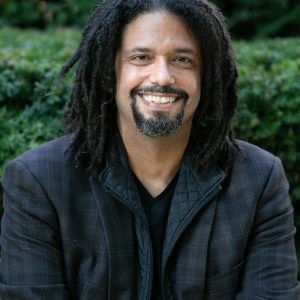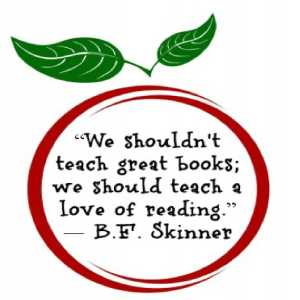
Episode 96 with Dr. Frank A. Guridy, Historian, Deep-Thinker, and Connector of Sports and Societal Issues Through The Sports Revolution: How Texas Changed the Culture of American Athletics
 2021-12-21
2021-12-21
Episode 96 Notes and Links to Frank Guridy’s Work
On Episode 96 of The Chills at Will Podcast, Pete welcomes Dr. Frank A. Guridy, and the two discuss, among other topics, his childhood in New York City and his early love of history, fostered by his parents and directly and indirectly based on his family’s immigration stories, his early and lasting introductions to influential writers and professors, as well as his book on African diasporas and connections to Cuba. The two spend the bulk of the interview discussing Frank’s latest book on Texas and its “sports revolution.”
Frank A. Guridy specializes in sport history, urban history, and the history of American social movements. His recent book, The Sports Revolution: How Texas Changed the Culture of American Athletics (University of Texas Press, 2021) explores how Texas-based sports entrepreneurs and athletes from marginalized backgrounds transformed American sporting culture during the 1960s and 1970s, the highpoint of the Black Freedom and Second-Wave feminist movements. His first book, Forging Diaspora: Afro-Cubans and African Americans in a World of Empire and Jim Crow (University of North Carolina Press, 2010), won the Elsa Goveia Book Prize from the Association of Caribbean Historians and the Wesley-Logan Book Prize, conferred by the American Historical Association. He is also the co-editor of Beyond el Barrio: Everyday Life in Latino/a America (NYU Press, 2010), with Gina Pérez and Adrian Burgos, Jr. His articles have appeared in Kalfou, Radical History Review, Caribbean Studies, Social Text, and Cuban Studies. His fellowships and awards include the Scholar in Residence Fellowship at the Schomburg Center for Research in Black Culture and the Ray A. Billington Professorship in American History at Occidental College and the Huntington Library. He is also an award-winning teacher, receiving the Regents’ Outstanding Teaching Award from the University of Texas at Austin, and, more recently, the Mark Van Doren Award for Teaching at Columbia. His current book project, Between Conflict and Community: The Stadium in American Life, tells the story of the American stadium as a community institution that has been a battleground for social justice since its inception.
Buy Frank Guridy's Books
Frank Guridy's Columbia University Home Page
Review of Forging Diaspora: Afro-Cubans and African Americans in a World of Empire and Jim Crow
Kirkus’ Reviews Review for THE SPORTS REVOLUTION:
HOW TEXAS CHANGED THE CULTURE OF AMERICAN ATHLETICS
At about 2:50, Frank talks about his early relationship with languages, his parents as immigrants and/or bilingual and symbolism-as seen through reading and listening to The Bible
At about 8:10, Frank talks about the “Trujillo legacy as profound” in his family, as well as how his family’s history impacted his decision to become a historian
At about 10:00, Pete and Frank talk about historical traumas and troubles in reconstructing some histories, and the two discuss infamous incidents in Trujillo’s dictatorship, including the pivotal word “perejil”
At about 13:05, Frank responds to Pete’s question about his early reading habits; Frank describes an early penchant for nonfiction/history, including sports biographies-Giant Steps by Kareem Abdul-Jabbar was one that “really spoke to [him]”
At about 16:35, Frank describes the unique and impressive reading culture of New York City, as well as how the subway served as a microcosm of NYC life-Frank calls it a “great place of learning”
At about 18:30, Pete wonders about any moments of discovery for Frank as he became someone who would read and write and study history for a living
At about 20:20, Frank recounts Horace Campbell’s intriguing and creative teaching that involved Rastafarianism and pulled Frank in as a future historian; he also cites other inspiring works from Angela Davis, Walter Rodney, C.L.R. James, and many others
At about 23:15, Frank explains his understanding of Bob Marley and Rastafarianism and the religious symbolism and history of the music and the cultures
At about 25:00, Pete asks about Frank’s ideas of representation in what he read from childhood into college
At about 27:55, Pete asks about Frank’s take on “publish or perish” in 2021
At about 31:00, Pete asks about the “seeds” for his first book, Forging Diaspora: Afro-Cubans and African Americans in a World of Empire and Jim Crow
At about 35:00, Frank gives background on the term “diaspora” and its connection to his work
At about 37:30, Frank talks about how sports advanced the end of the color line in baseball and other sports, with a particular focus on Cuba and the Caribbean; he also shouts out Adrian Burgos’ Cuban Star
At about 41:10, Pete wonders about the genesis of his latest book, The Sports Revolution: How Texas Changed the Culture of American Athletics
At about 46:00, Pete notes how the book’s form, in eight chapters, is reminiscent of Sam Quinones’ True Tales from Another México in its scope and cohesiveness
At about 46:40, Pete uses the book’s opening as a springboard
At about 47:30, Frank discusses some ideas of the book’s thesis including the book’s first chapter, which deals with early integration
At about 49:30, Frank responds to Pete’s question about motives for integration among Houston and Texas’ sports teams, drawing on history and contemporary connections
At about 52:50, Pete and Frank discuss the unfair and outsized expectations, burdens, and consequences for the “first” to integrate-Jackie Robinson, for one, and Jerry LeVias of SMU, “who lost the ability to feel” (watch the moving video interview here)
At about 56:20, Pete notes the intriguing stories told in the book about the Baseline Bums of the 1970s San Antonio Spurs and the incredibly-underpaid Cowboys’ Cheerleaders
At about 57:40, Frank discusses Bobby Riggs and the famous (infamous?) “Battle of the Sexes” tennis match, including the cigarette industry’s involvement, and innovators and visionaries like Gladys Heldman
At about 1:02:10, Pete and Frank discuss the importance of Houston and Phi Slamma Jamma’s impact and the book’s Epilogue, as the revolution was “undone,” particularly by business interests
At about 1:04:40, Frank explains a mission of his in writing the book: giving a more well-rounded and nuanced view of Texas
At about 1:05:35, Pete outlines an powerful essay, written by Dan Treadway, and that Pete has taught in his English classroom, that juxtaposes The University of Texas’ Asian Studies Program and its football program
At about 1:07:35, Frank discusses his upcoming book on the importance of stadiums in society, to be published by Basic Books
At about 1:09:00, Frank gives out his contact info
You can now subscribe to the podcast on Apple Podcasts, and leave me a five-star review. You can also ask for the podcast by name using Alexa, and find the pod on Stitcher, Spotify, and on Amazon Music. Follow me on IG, where I’m @chillsatwillpodcast, or on Twitter, where I’m @chillsatwillpo1. You can watch this and other episodes on YouTube-watch and subscribe to The Chills at Will Podcast Channel. Please subscribe to both my YouTube Channel and my podcast while you’re checking out this episode.
This is a passion project of mine, a DIY operation, and I’d love for your help in promoting what I’m convinced is a unique and spirited look at an often-ignored art form.
The intro song for The Chills at Will Podcast is “Wind Down” (Instrumental Version), and the other song played on this episode was “Hoops” (Instrumental)” by Matt Weidauer, and both songs are used through ArchesAudio.com.
Please tune in for the next episode, a conversation with Kyle Beachy. Kyle Beachy‘s first novel, The Slide (Dial Press, 2009), won The Chicago Reader’s Best Book by a Chicago Author reader’s choice award for the year. His short fiction has appeared in journals including Fanzine, Pank, Hobart, Juked, The Collagist, 5 Chapters, and others. His writing on skateboarding has appeared in The Point, The American Reader, The Chicagoan, Free Skateboard Magazine (UK & Europe), The Skateboard Mag (US), Jenkem, Deadspin, and The Classical. He teaches at Roosevelt University in Chicago and is a co-host on the skateboarding podcast Vent City with pro skater Ryan Lay and others. His newest book was released in 2021 to rave reviews-the book is The Most Fun Thing: Dispatches from a Skating Life. The episode with Kyle Beachy will air on December 28.
More Episodes
Create your
podcast in
minutes
- Full-featured podcast site
- Unlimited storage and bandwidth
- Comprehensive podcast stats
- Distribute to Apple Podcasts, Spotify, and more
- Make money with your podcast
It is Free
- Privacy Policy
- Cookie Policy
- Terms of Use
- Consent Preferences
- Copyright © 2015-2024 Podbean.com







